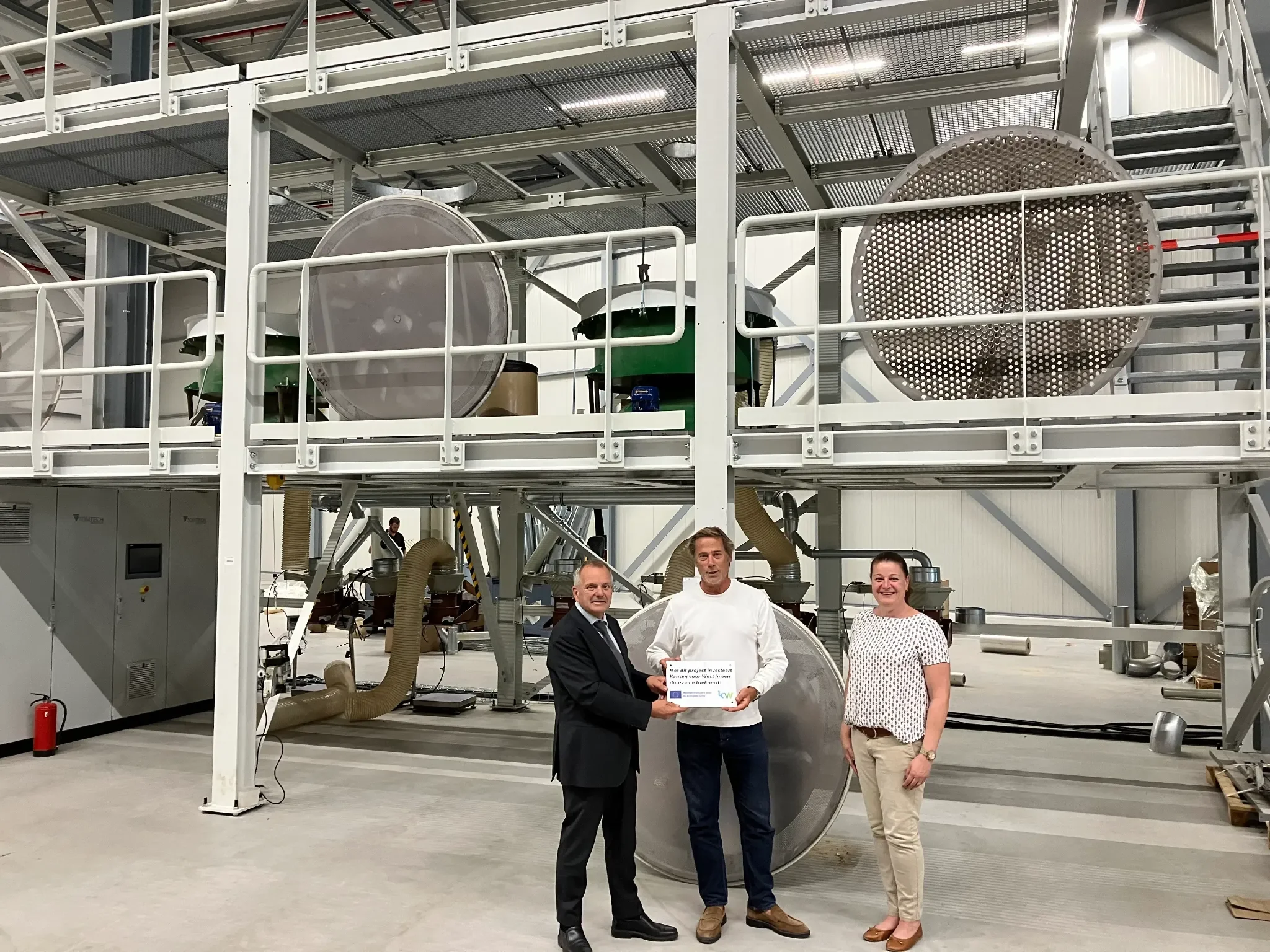Bamboo Fiber Proves a Game-Changer for BMC Composites

Bamboo Fiber Proves a Game-Changer for BMC Composites
Bambooder’s solar-powered fiber technology unlocks the full potential of bamboo for bulk molding compounds and beyond.

Natural fibers are reshaping the composites landscape, and bamboo is quickly emerging as one of the most versatile and scalable options—especially for Bulk Molding Compound (BMC) applications. With its tunable fiber fractions and excellent mechanical behavior, bamboo fiber is now being adopted by compounders as a sustainable alternative with broad application potential.
At Bambooder, we’ve developed a fully solar-powered mechanical extraction process that isolates up to ten different fractions from bamboo culms — each tailored for a specific role in composite formulations. These include short fibers ideal for BMCs and injection molding, as well as longer fibers for structural performance in sheets and tapes. All with multiple thickness levels. This level of precision opens up bamboo to a wide spectrum of applications, from technical parts to aesthetic surfaces.
Replacing Glass Fibers in Compounds and Plastics
Bamboo fiber is not just a green alternative, it can often replace traditional glass fibers in both thermoset and thermoplastic compounds, meeting strength requirements and offering compatibility with a wide range of resins. In many applications, performance benchmarks in strength, weight reduction, and processing compatibility, are often achievable with bamboo fiber, while offering drastically lower CO₂ emissions and improved end-of-life options. This makes bamboo an ideal drop-in solution for industries looking to phase out other fibers without compromising quality or throughput.
Why Bamboo Works in BMCs
Until recently, natural fiber use in BMC and SMC compounds was limited by moisture sensitivity and resin compatibility. Thanks to recent innovations in degassing techniques and fraction customization, bamboo fibers can now be reliably processed in BMC without compromising surface quality or strength.
Key benefits include:
- Improved moisture behavior: Bamboo’s natural lignin content helps it resist water absorption and retain strength over time. Residual moisture is easily managed during processing.
- Adaptable fractions: Our process delivers fiber grades optimized for BMC, SMC, extrusion, and thermoplastics—making bamboo a flexible ingredient in diverse compound systems.
- Thermal stability: Bamboo maintains integrity at temperatures up to 200°C
- Natural damping: Ideal for vibration-sensitive applications in automotive and electronics.
A Truly Scalable and Sustainable Solution
Unlike more regional crops, bamboo is a globally available and rapidly renewable resource. Bambooder sources from certified farms and operates a clean mechanical process powered entirely by solar energy. For every 1 kg of bamboo fiber produced, up to 3.9 kg of CO₂ is removed from the atmosphere, making it climate-positive by design.
Bamboo also supports long-term supply stability—critical in industries increasingly affected by environmental volatility and regulatory pressures.

From Fiber to Function: Real-World Use Cases
Leading compounders and manufacturers are already integrating bamboo fibers into products scheduled for launch before 2026. Two standout areas include:
- Facade panels and traffic signs
The BMC pressed panels and signs start with traditional polyester and epoxy type solutions, that will be replaced in the future for more climate friendly resins. - Printed Circuit Boards (PCBs)
FR-4, the conventional PCB material, is non-recyclable and toxic. Bamboo-reinforced pressed sheets (SMC) offer a clean, lightweight, and biodegradable alternative for the next generation of electronic devices.

Beyond Substitution: Expanding Design Possibilities
Rather than replacing existing fibers one-to-one, bamboo extends the design and performance space available to engineers and sustainability leaders. Its varied fiber geometries allow for hybrid formulations, tuned mechanical profiles, and unique surface aesthetics.
Whether you're targeting lightweighting, biodegradability, noise damping, or CO₂ reduction, bamboo offers a versatile path forward—compatible with the manufacturing technologies and performance expectations of today’s industries.
Ready for Scalable Impact
The future of bio-based composites depends on materials that are not only sustainable but scalable, adaptable, and economically viable. Bamboo fiber, backed by Bambooder’s innovation in clean extraction and compound development, meets this challenge head-on.
If you're working in automotive, electronics, consumer goods, or construction—and exploring bio-based options for BMC, SMC, or injection molding—now is the time to talk bamboo. Bambooder is working with five of Europe’s top ten compounders on different formula’s. The compounds will be launched commercially via these compounders in Q4 of this year.
Let’s build the next generation of composites, together.




-min.png)
.webp)